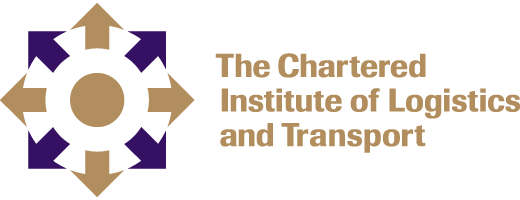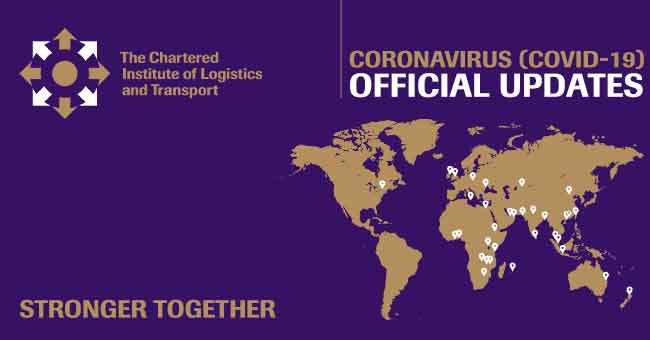Business Continuity and the Ongoing Management of Risk is an ever changing subject, with various states taking various approaches with differing degrees of success.
CILT Ireland examine how businesses in our sector are currently operating and how they may operate in the future. Sharing the government’s roadmap for a phased re-opening of society and business in Ireland they note that this plan, like all plans on agreed basis for change, evolves each week based on data received. And, the data so far suggests that they are doing something right:
Business Continuity
This has proved difficult for many sectors where it is not possible to work remotely. These companies have, where possible, retained their employees, availing of a state subvention, and where this has not been possible they have temporarily laid them off. Those that can work remotely (ourselves included) have continued to do so. This in itself has brought challenges to all.
The main challenge is communications which is being overcome by the myriad of electronic virtual meeting applications available. These however, only work for those that are office based, and have not worked for many sectors.
In relation to the FTDL sector, the supply chain has been designated an ‘essential service’ in Ireland and is therefore exempt from many restrictions applied in other areas. In real terms we have seen the volume of containerised freight coming through Dublin Port decrease by 40% during April, which has effected business continuity for all sectors. Thankfully this trend is now reversing. The FTDL sector, though essential, has had to make redundancies as a result of a drop in demand for its services. Those that had sufficient business to keep going have issued guidelines and PPE.
In the education sector we have seen changes like never before. CILT Ireland test between 1500 and 2000 drivers each year in the transport of dangerous goods by road, and these examinations have been put on hold since the end of March. A blanket extension for all existing licence holders was issued until 01 Dec 2020 by the competent authority, and we hope to recommence examinations for new entrants in July. In order to make this a reality we have to put procedures in place to protect both the candidates and the invigilators, although these are relatively straight forward. It will involve conducting staggered examinations (all computer based) in specialised computer labs with plexiglass dividers. Previously we could examine 40 at a time, but we will now test 10 – 20 at a time. Simply put we will examine the same amount of people over a longer period of time. We also conduct paper based examinations, and if these go ahead in November/December, we will be using large venues with well-spaced out tables. In March we took our Higher Certificate in Business, Logistics and Supply Chain Management fully online and changed our assessment methodology in line with our academic partner’s requirements (Institute of Technology Carlow). The situation in relation to September 2020 remains unknown. Whilst our learners have indicated a preference for face to face instruction, this may not be possible with the number of learners that we have. We may split the learners into two groups (alongside existing splits for first and second year, and location splits), with learners accessing material on a LMS and then on a face to face basis, on alternate weeks. This is contingent on securing lecture halls of sufficient size. As for availability of learners, we are noticing that we are having no difficulty recruiting. We now have 31 first years signed up in comparison with 7 at the same time last year.
We run a Skillnet on behalf of Skillnet Ireland (National Training Agency), and have pushed all our training online, as well as developing COVID-19 specific offerings. In 2019 we led the states response to Brexit, training 600 individuals in how to make customs declarations. This training was delivered on a face to face basis but we are now taking this training fully online (this is subject to continued funding of the program), and intend to train 2500 in 2020.
The State under the Department of An Taoiseach (Prime Minister) has established the COVID-19 National Logistics Forum, which is chaired by CILT. This is a collection of stakeholders from all branches of the FTDL sector, as well as relevant state bodies, whose aim is to identify blockages in critical areas of the supply chain. Once identified industry and state resources are applied to ameliorate the pinch points. This group has been in existence for the last seven weeks, and is now finalising a collective response from the FTDL sector to be presented to government.
Risk Mitigation
All entities are now engaged in risk identification, and risk mitigation plans are being put in place. These are all being driven by guidance from the state, and the mitigation revolves around physical distancing, PPE and remote working where possible.
There is also risk mitigation in terms of the diversity of the supply chain, which was heretofore being practiced by most large entities. Covid -19 has alerted industry to the fragility of their supply chain, and we expect to see a mitigation against supply chain shocks such as Covid-19 in the coming years. This will be instigated by entities holding larger inventory of raw material, and also the phrase in pharma of “exploding the BOM” is getting traction. It is not acceptable for pharma production to be halted as they are wait for one element of raw material and we expect to see a more centralised/localised approach to sourcing raw materials in the coming years. Why go out of Europe when we don’t need to?
The way of working in Ireland has changed, as it has throughout the world. We are all learning new ways of conducting business in a manner that is safe from an individual perspective whilst also being viable. At this stage it is impossible to know what exactly the new way of working will look like, but it will not look like it does at the moment.
This is an example of industry analysis from Ireland which we are sharing as part of our global best practice resource to help you think about and determine appropriate responses locally.

